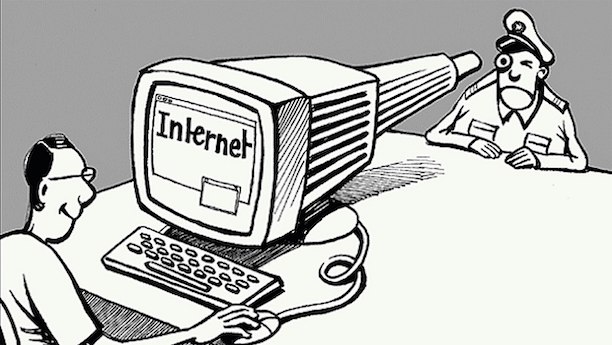Pages: << 1 ... 15 16 17 18 19 20 21 22 23 24 25 ... 1279 >>
Designing Your Forever Home: Must-Have Features for Aging in Place Comfortably
by Janet Campbell
Choosing a home that accommodates your needs as you age is a significant decision requiring careful thought and planning. It's important to consider features that promote comfort, safety, and long-term accessibility, ensuring the space can adapt to your changing needs over time. Beyond the home itself, the surrounding environment plays a crucial role, offering opportunities for engagement, convenience, and connection. With the right considerations, you can create a living space that supports both your independence and overall well-being for years to come.
A Structural Examination of Gaza's Mortality Crisis: From Counting to Epistemic Breakdown
Robert David
Gaza's Uncounted Dead, a Death-Count of 64,260 Lost Souls Not Counted Due to Rubble-ization, State-Sanctioned Under-Countning and Other Means, Including Israel Hacking Emails and Websites Electronically to Get Their Detractros Websites Linked to Porn, Gambling, Spam-Emails, SpamCop False Positives and "Spam-Vertizing."
At first glance, the figures hit with the weight of a statistical catastrophe—64,260 lives lost due to violent injury in just a few months, a number 40% greater than official counts. But these numbers represent more than just a discrepancy—they highlight the catastrophic failure of a key modern principle: the state's ability to account for those it kills. We're witnessing an epistemic break where the systems that track mortality have been systematically destroyed through three overlapping erasure processes.
Israel's Systematic Killing of Journalists and Western Media Complicity in Portraying Genocide as "Self-Defense"
Fred Gransville
The world has seen an unparalleled slaughter of journalists following Israel's military attack on Gaza in October 2023. At least 103 journalists have been killed during the war within the first 150 days alone. The fatality toll is the highest media practitioner conflict in history. The regime's institutionalized killings of journalists are a reckless disregard for international law, a confirmation of the regime's dedication to muzzling truth. And still, in the presence of irrefutable evidence of targeted killings, Israel has not been held accountable, and Western mainstream media (MSM) continues to frame its actions as acts of "self-defense," essentially obliterating what many legal scholars and human rights organizations have confirmed as genocide.
The DMCA Weaponized: The Dark Face of Web Censorship
The Digital Millennium Copyright Act (DMCA) was signed into law in 1998 and praised as a long-awaited move to help safeguard intellectual property in the new digital age. However, what was meant to protect creators has been increasingly employed as an instrument to stifle opposition, manage information, and enforce conformity, typically in the interest of protecting copyrights. This misuse of the DMCA is a stark injustice that should invoke a sense of indignation in all who value free speech. It also underscores the urgent need for resistance against such misuse, a determination to uphold the principles of free speech.
The Silent War: Mossad’s Global Web of Cyber Espionage Sayanim and the Unseen Battle for Digital Dominance
By Tracy Turner

In the shadowy lanes of global intelligence, wars are no longer fought with bullets and bombs but with backdoors and algorithms. Israel's Mossad, with its unmatched skills, has transformed the battlefield into an invisible war zone where few can see, fewer understand, and even fewer survive.
At its heart is Unit 8200—the cyber warriors who breach systems and create the backdoors that allow them to take over global infrastructure. But they would be useless without a second force, as ghosts and as powerful: the Sayanim (Hebrew for "Helpers"), Mossad's worldwide network of deniable operatives who render covert operations possible with the subtlety of silent whispers.
The Tail Wagging the Dog: How Israel Controls U.S. Foreign Policy
Tracy Turner
Various interest groups have shaped the political climate of the United States throughout the decades. However, the United States-Israel relationship is the most intriguing and longest-standing case of foreign influence on American politics. This "special friendship," at times referred to as such, has developed from shared strategic interests to a dynamic where the impact of Zionist interests on American politics can be said to be out of proportion to the interests of the American people. This information reveals that it is no partnership of equals but is somewhat likely to be a matter of the tail-wagging dog—where the priorities of Israel dominate policy decisions in the United States.
Police and Prisons Belong in Museums
By David Swanson, World BEYOND War
I want to recommend three new books about abolishing police and prisons. And I want to recommend multi-issue abolitionism beyond those two institutions.
What else would I abolish? Well, a list might start with war, fossil fuels, militaries, prisons, nuclear energy, police, nuclear weaponry, campaign bribery, health insurance companies, the death penalty, the livestock industry, Wall Street, borders, poverty, the NSA, the CIA, the United States Senate, Fox News, MSNBC, the Star Spangled Banner, the cyber truck. I could go on. Lists will vary around the world.
By abolitionism I mean, primarily, persuading masses of people of the superiority of a new way of doing things, and effecting the political changes to create that new way of doing things. You can’t get rid of police or prisons or wars or Fox News by blowing up a building or zeroing out a budget, if people are all left believing that they need or want those institutions. The darn things will quickly be back stronger than before.
DarkBART & DarkBERT: The Dark Web Pre-Crime Machine Learning Models
Robert David

Artificial intelligence (AI) has revolutionized many sectors, ranging from enhancing customer service to maximizing medical diagnoses. Maybe one of the more contentious and interesting applications of AI, however, is in the investigation of the dark web. The dark web, that uncontrolled and frequently illicit segment of the internet, has taken a leading role in innovating AI programs like DarkBERT and DarkBART.
American Christian Churches Have Become Synagogues of Satan
by Brian Shilhavy
The words of Jesus Christ, as recorded in the last book of the Bible in the prophetic book of Revelation, state:I know your afflictions and your poverty—yet you are rich! I know the slander of those who say they are Jews and are not, but are a synagogue of Satan. (Revelation 2:9)
These words were addressed to the congregation of believers in Jesus Christ in the city of Smyrna, in present-day Turkey. They were being slandered by the Satanic Jews (Zionists today).
He made it very clear that these so-called “Jews” who claimed to believe in Him were not his followers, but belonged to the “Synagogue of Satan.”The Rise of Crypto-Zionism: A Chronology from Nixon to Trump's Second Term (2025)
Cathy Smith
Zionist propaganda and proponents of pro-Zionist ideology have intervened in global politics, which is referred to as Crypto-Zionism. Proponents of this movement have employed technology, media, and international alliances to achieve their goals from the Nixon presidential administration up to Trump's presidential administration in 2025. This essay outlines the chronology of Crypto-Zionism, identifying its significant milestones, players, and media events. Through this timeline built from a multitude of sources: news articles, academic publications, and investigative journalism, I argue that from unreconciled claims, the Israeli mark of Crypto-Zionism poses a dire menace to democracy and freedom.










